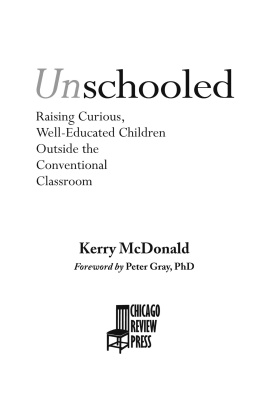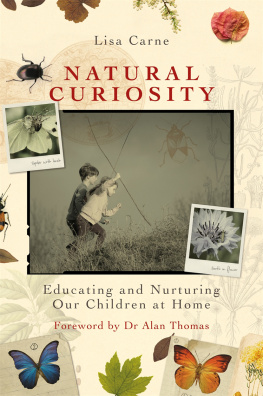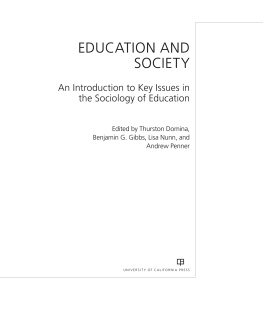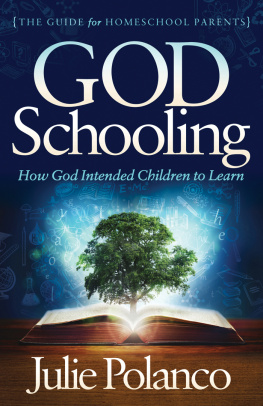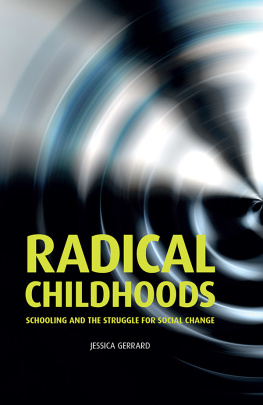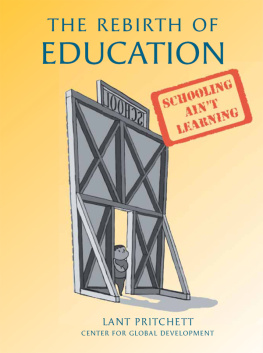To Molly, Jack, Abby, and Sam, who teach me how to learn.
Authors Note
UNSCHOOLING IS SIMPLY LIVING, AND allowing your children to live, without the specter of conventional schooling and school-like thinking. It is the act of fusing living and learning, of seeing them as one and the same. There is no one way to be an unschooler, no singular path of facilitating self-directed education. There is you, your children, your family, your communityyour life. You will define and practice unschooling in your own way. I hope that the thoughts in these pages give you some ideas and suggestions, but your unschooling adventure is uniquely yours.
This book represents my personal views and experiences related to unschooling and self-directed education. It does not reflect the beliefs of all unschoolers or any particular self-directed learning organization. There are many thoughtful people who have been on the unschooling path for a long time and have valuable insights to share. In these pages, I have tried to highlight some of them; others are mentioned in the Additional Resources section at the end.
All of the names and details in this book are real. No one asked to be anonymous, and all were eager to share their perspectives on unschooling. This book focuses mostly on unschooling in the United States, but many of its concepts can be applied more globally. I do not intend this book to provide legal guidance for complying with local homeschooling regulations and alternative education requirements. For more information about the topics discussed in this book, please visit www.unschooledbook.com.
Foreword
BEFORE YOU ENTER FURTHER INTO this wonderful book by Kerry McDonald, it would serve you well to think broadly about the meaning of education. Too often, in everyday language, we equate education with schooling. We ask someone How much education have you had?, and we expect them to tell us about the number of years they spent in school or their highest diploma. But any serious consideration of education requires us to think of it as something much bigger than and quite different from schooling and as something impossible to quantify.
In the long run of human history, schooling as we conceive of it today is new. Its been common for only about 150 years. It arose at a time in history when people believed that the most important lesson for children to learn is obedience and that there is some finite set of facts (or what were deemed to be facts) that must be drilled into everyones head. Schools were designed for obedience training and drill, and they persist today primarily toward those ends, regardless of what school administrators, teachers, parents, and students themselves might want the ends to be.
The structural elements of schoolsthe confinement of students into age-segregated classrooms, the top-down hierarchy of authority, the required curricula, and the uniform systems of testing and gradingall dictate that obedience and memorization are the primary ends. As long as students obey by doing what the teacher tells them to do and memorize what the teacher tells them to memorize, they will pass. The only way to fail is to disobey. Many if not most people today recognize that schools arent serving well the real needs of individuals or society. They fail to cultivate the initiative, creativity, critical thinking, love of learning, and social-emotional skills that are so valuable for success and happiness in todays world. Yet we foolishly try to fix the problem by doing more of what isnt workingrequiring that young people spend ever more hours per day, days per year, and years of their life in school.
Education is something quite different from schooling, and it has been part and parcel of our human nature for as long as we have been humans. We might define education broadly as the sum of everything a person learns that enables that person to live a satisfying and meaningful life. This includes the kinds of things that people everywhere more or less need to learn, such as how to walk upright, how to speak their native language, how to get along with others, how to regulate their emotions, how to make plans and follow through on them, and how to think critically and make good decisions. It also includes some culture-specific skills, such as in our culture how to read, how to calculate with numbers, how to use computers, maybe how to drive a carthe things that most people feel they need to know in order to live the kind of life they want to live in the culture in which they are growing up. But much of education, for any individual, entails sets of skills and knowledge that may differ sharply from person to person, even within a given culture. As each persons concept of a satisfying and meaningful life is unique, each persons education is unique. Society benefits from such diversity.
Most of education, thus defined, is necessarily self directed. It derives from the self-chosen activities and life experiences of the person becoming educated. It requires an active, questioning mind-set, not the passive, obedient mind-set of schooling. As schooling has continued to occupy ever more of young peoples lives, an increasing number of families have come to realize that it leaves too little time for self-directed education. Therefore, an increasing number of families are taking their children out of standard schools, out of any kind of imposed curriculum, and providing them, instead, with the time, freedom, empowerment, and resources needed to take charge of their own education.
It turns out that children are brilliant at directing their own education when we give them the opportunity to do so. This should not be surprising. Throughout human history, up until very recently, children were nearly always in charge of their own education. We would not have survived as a species if they werent good at it. Natural selection has shaped childrens curiosity, playfulness, sociability, willfulness, and innate desire to do well in the world in ways that serve beautifully the purpose of education.
Many of the families who opt out of coercive schooling become legally homeschoolers, but instead of doing school at home they enable the children to pursue their own interests. These are the families that generally call themselves unschoolers. Others enroll their children in settings that are legally schools but are structured in such a way that children are free to pursue their own interests. Such schools are often called free schools or democratic schools. Increasingly, families who have taken either of these routes are using the term self-directed education to describe their practice, and I am delighted to see that Kerry McDonald has used this term throughout this book. The term unites the families who have opted for different ways of supporting their childrens self-education, and it helps us see that all of these families are part of one big, worldwide movement aimed at allowing children to live and learn in the joyful, natural ways that they are designed to live and learn.
As this book makes so clear, the choice of self-directed education is not an abrogation of responsibility on the part of families but an embracing of responsibility. In such families, the initiative and direction for education come from within the child, but parents and other adults help by providing the environmental contexts and security that children need to optimize their abilities to educate themselves.

